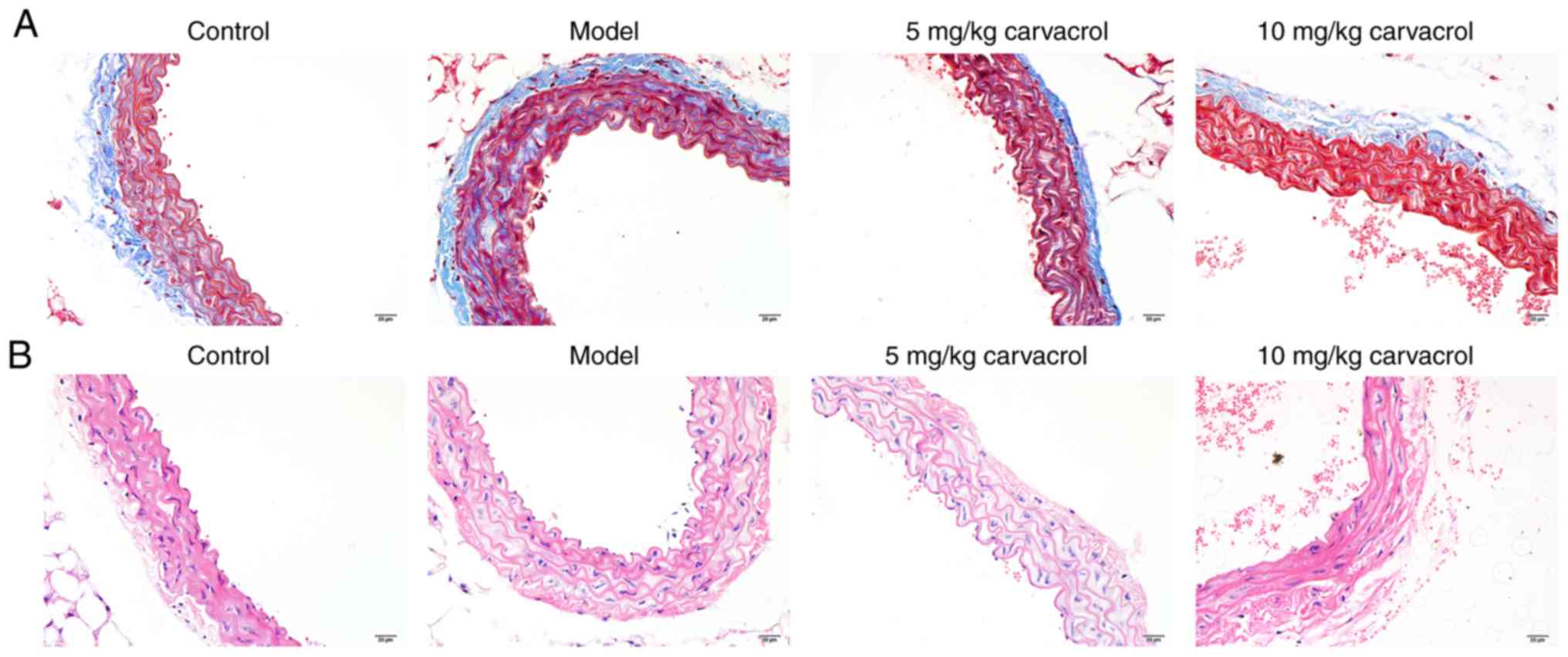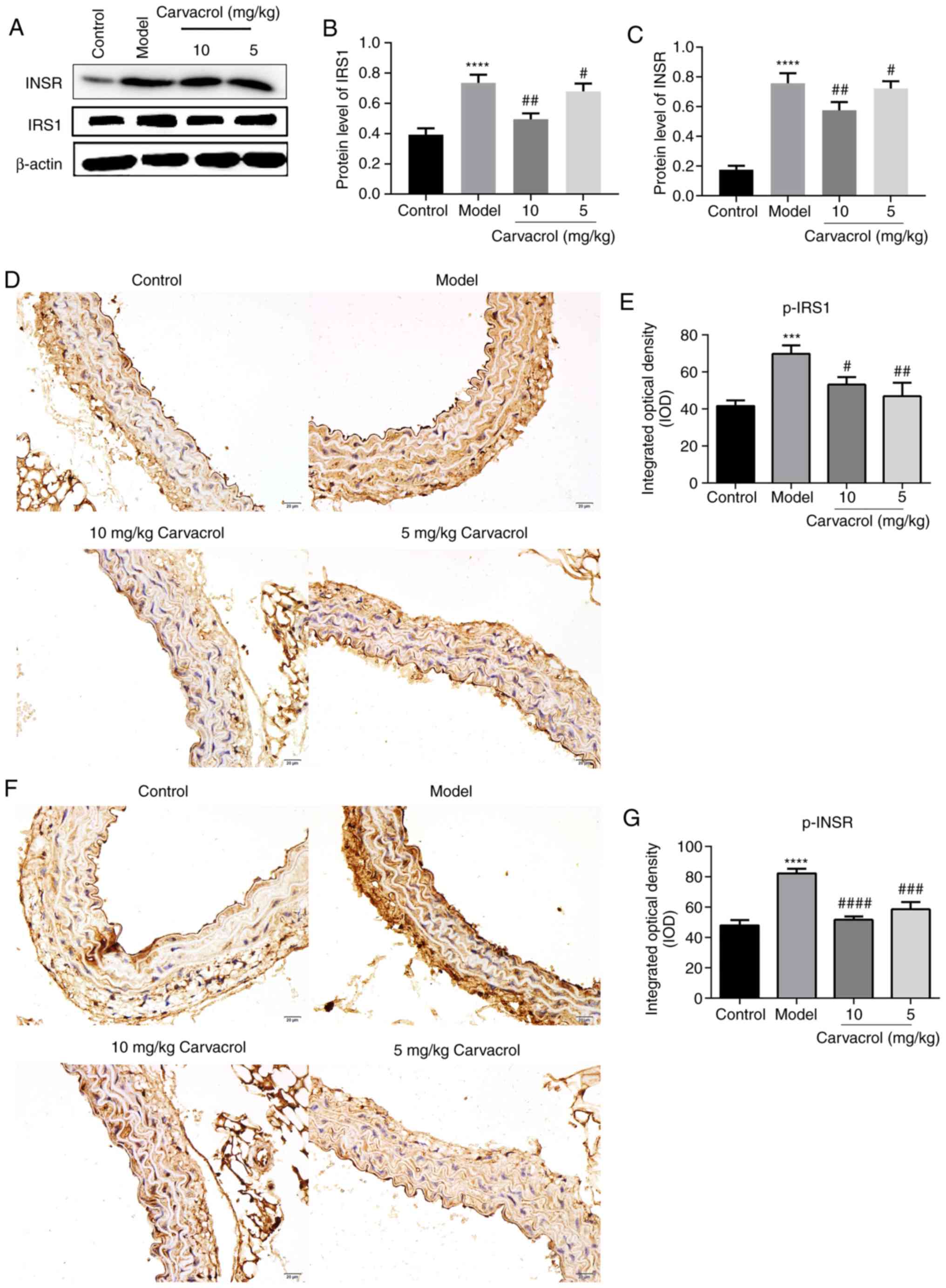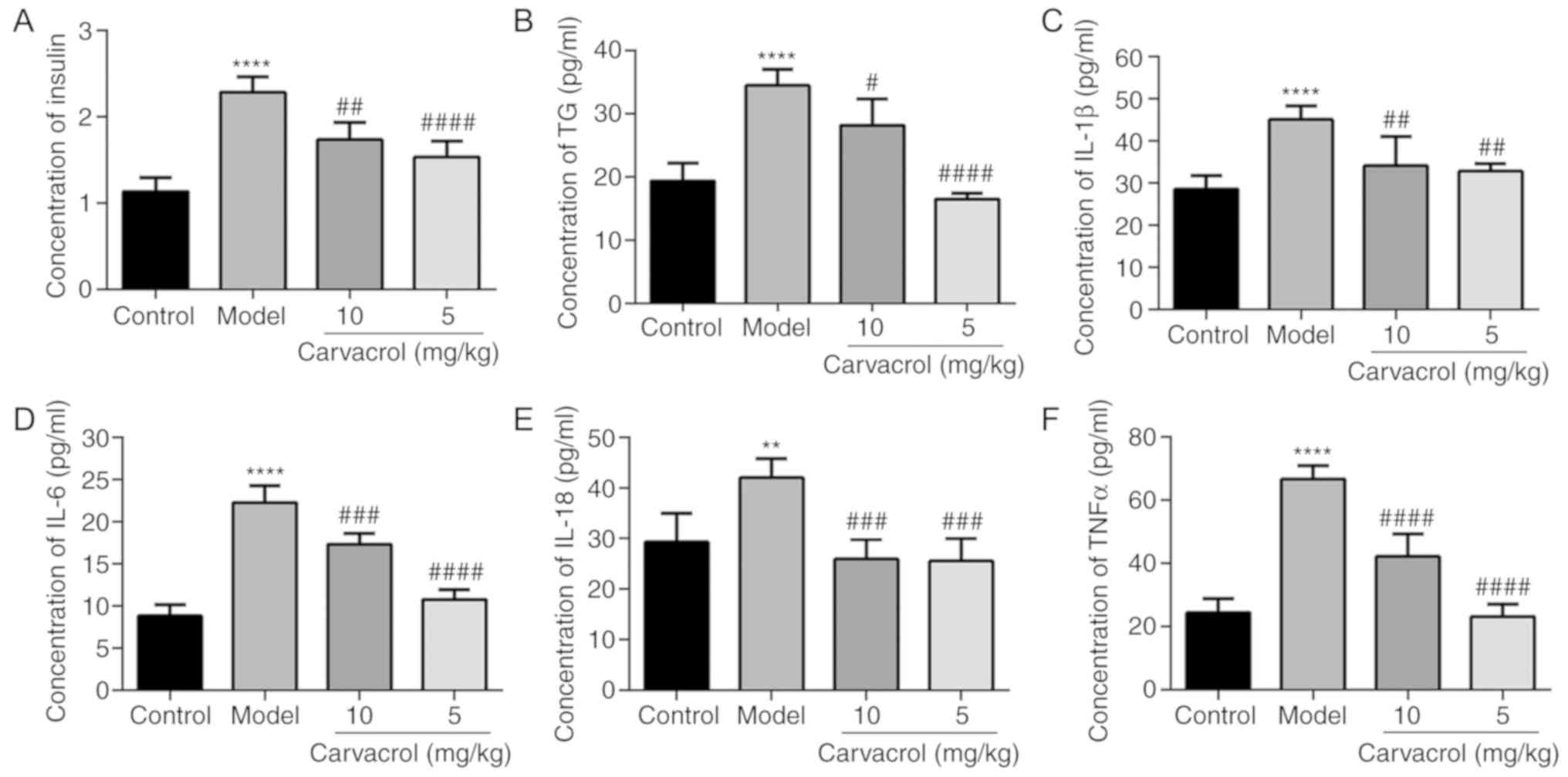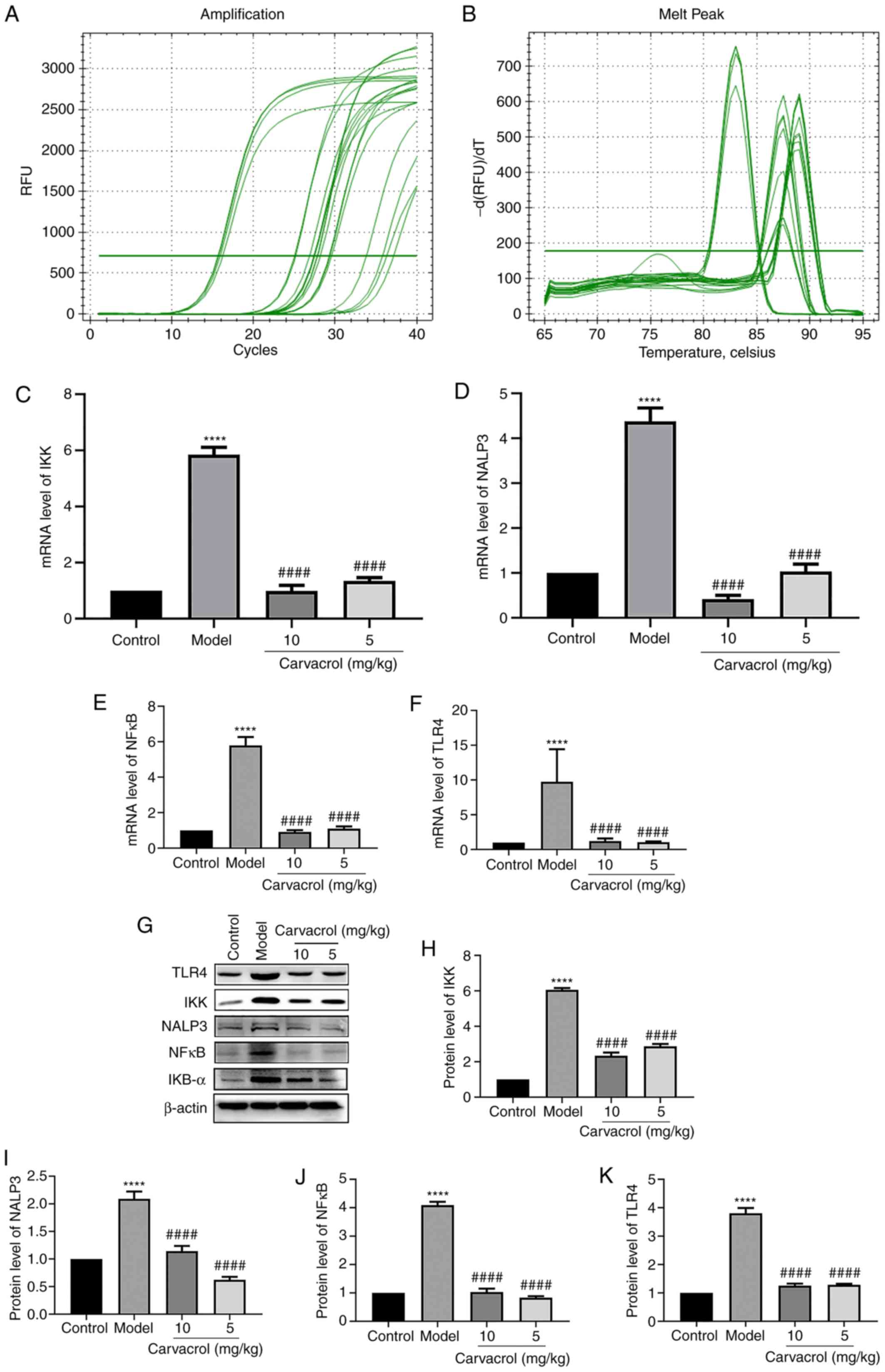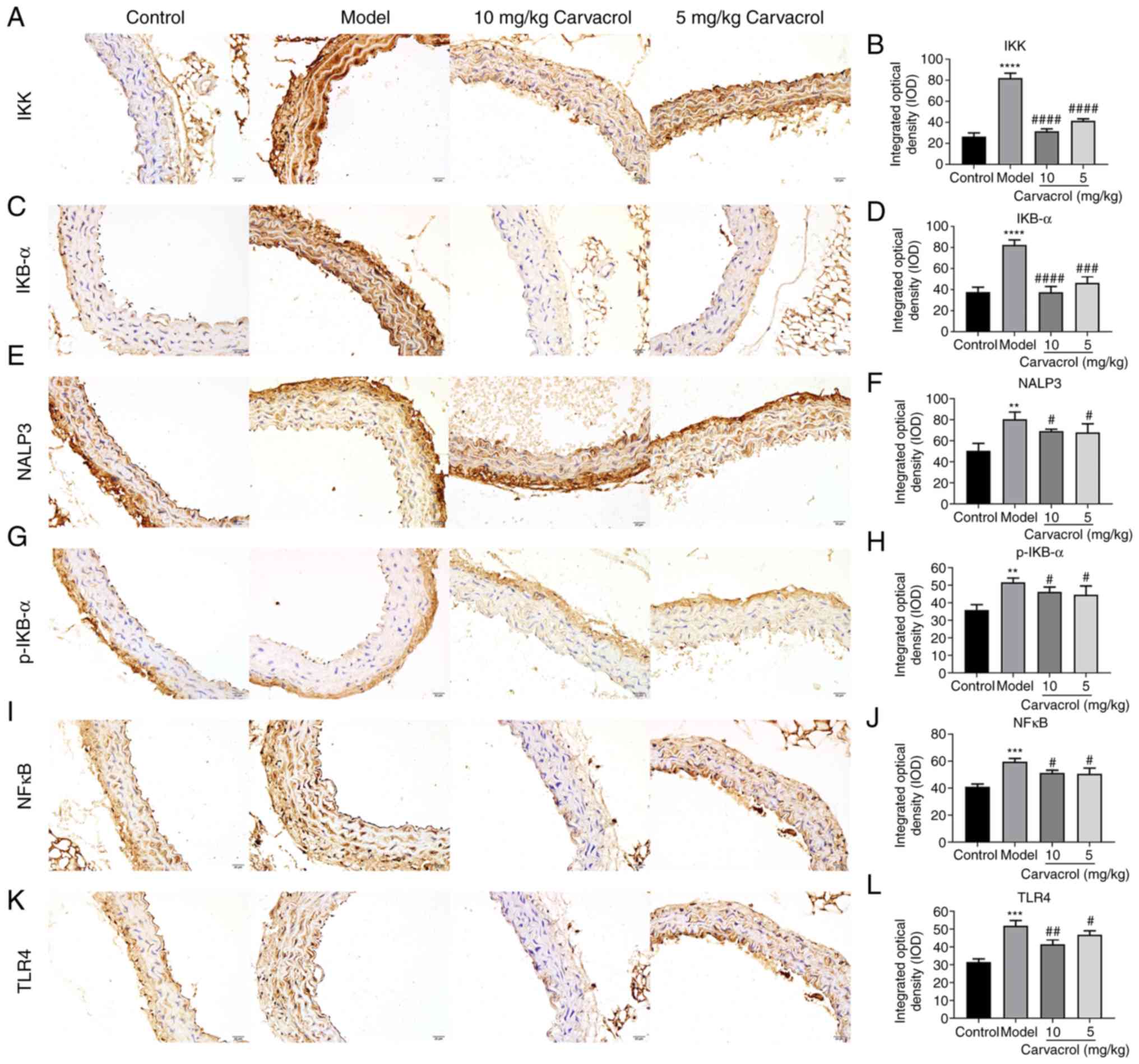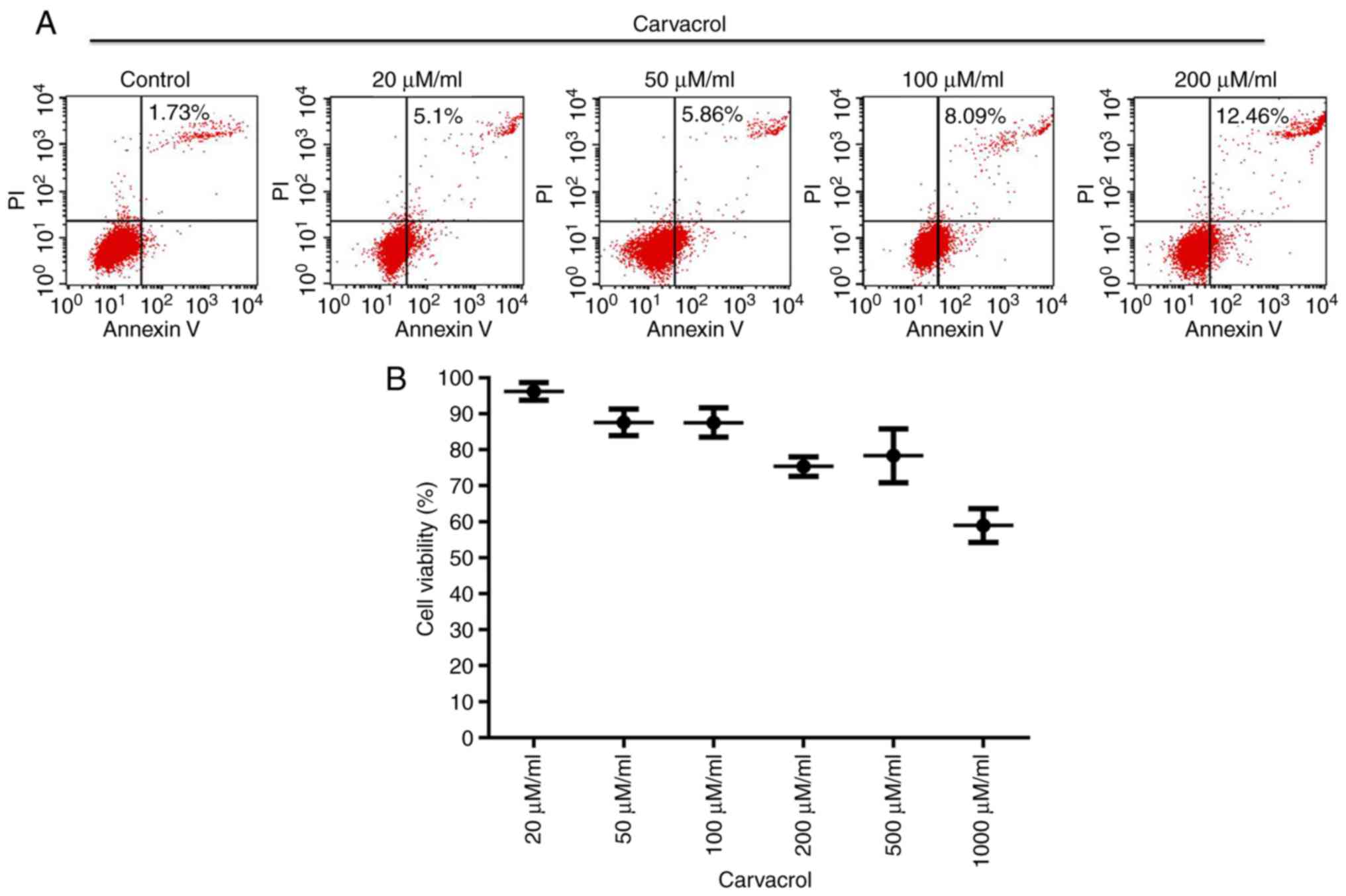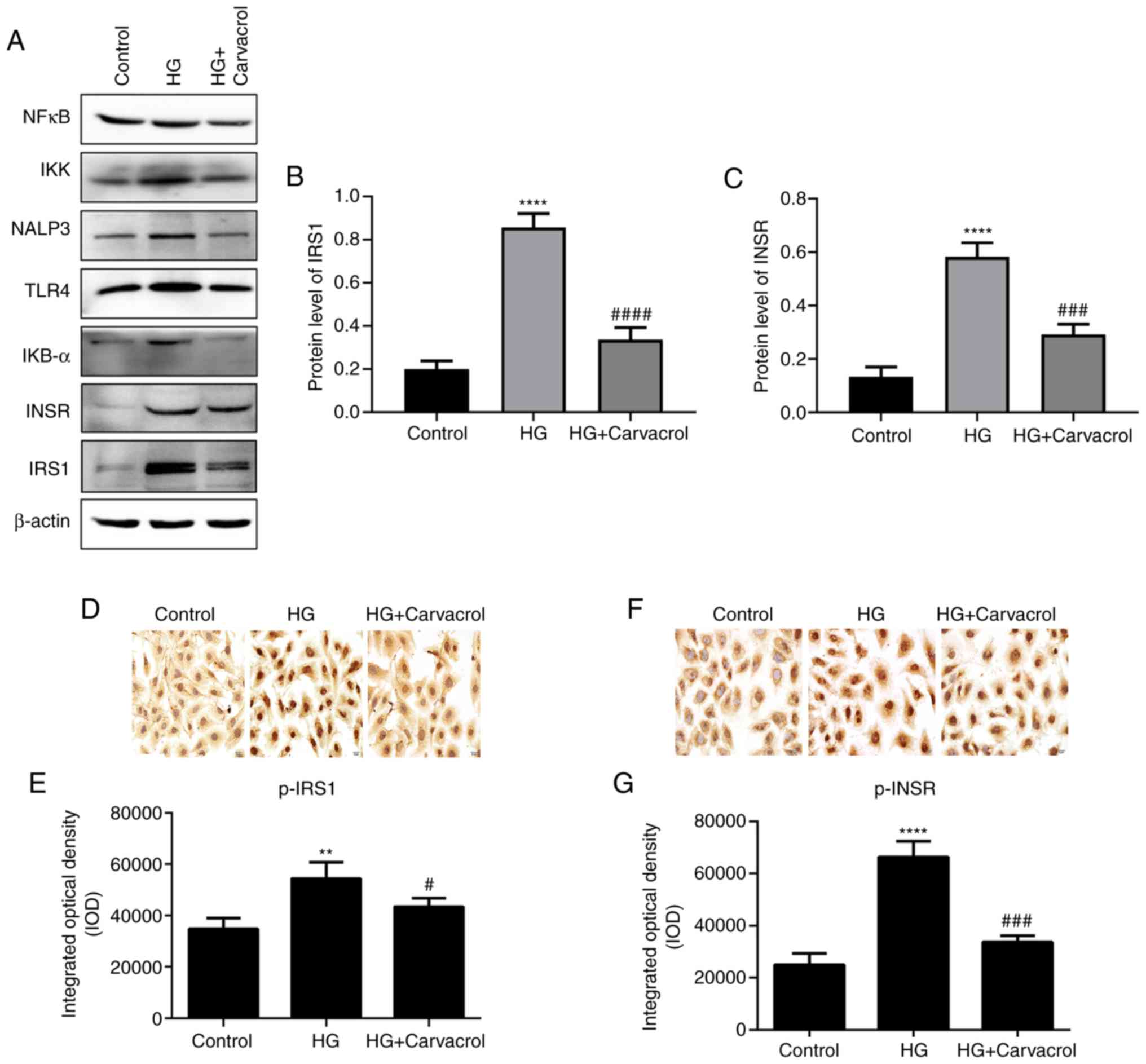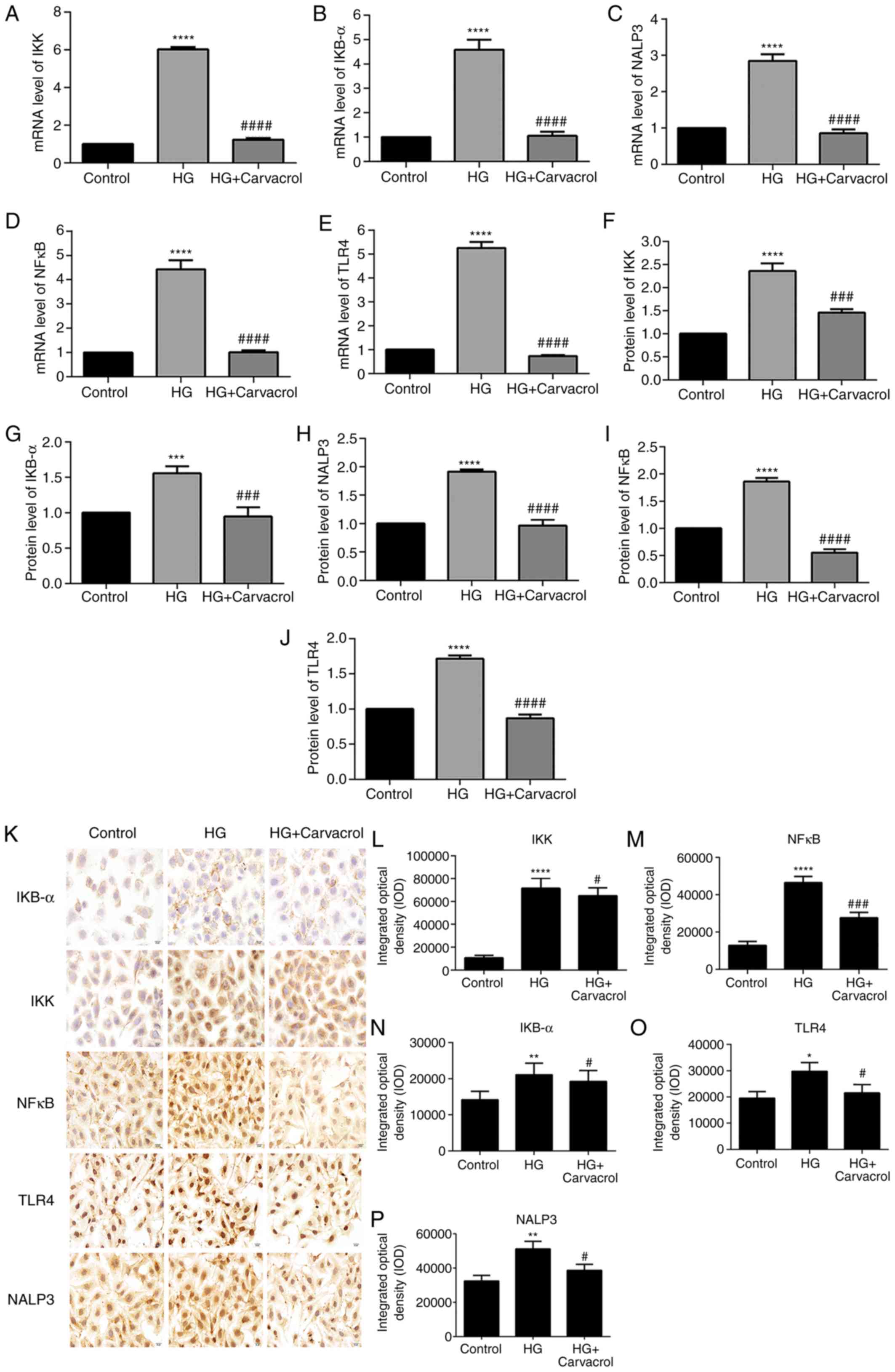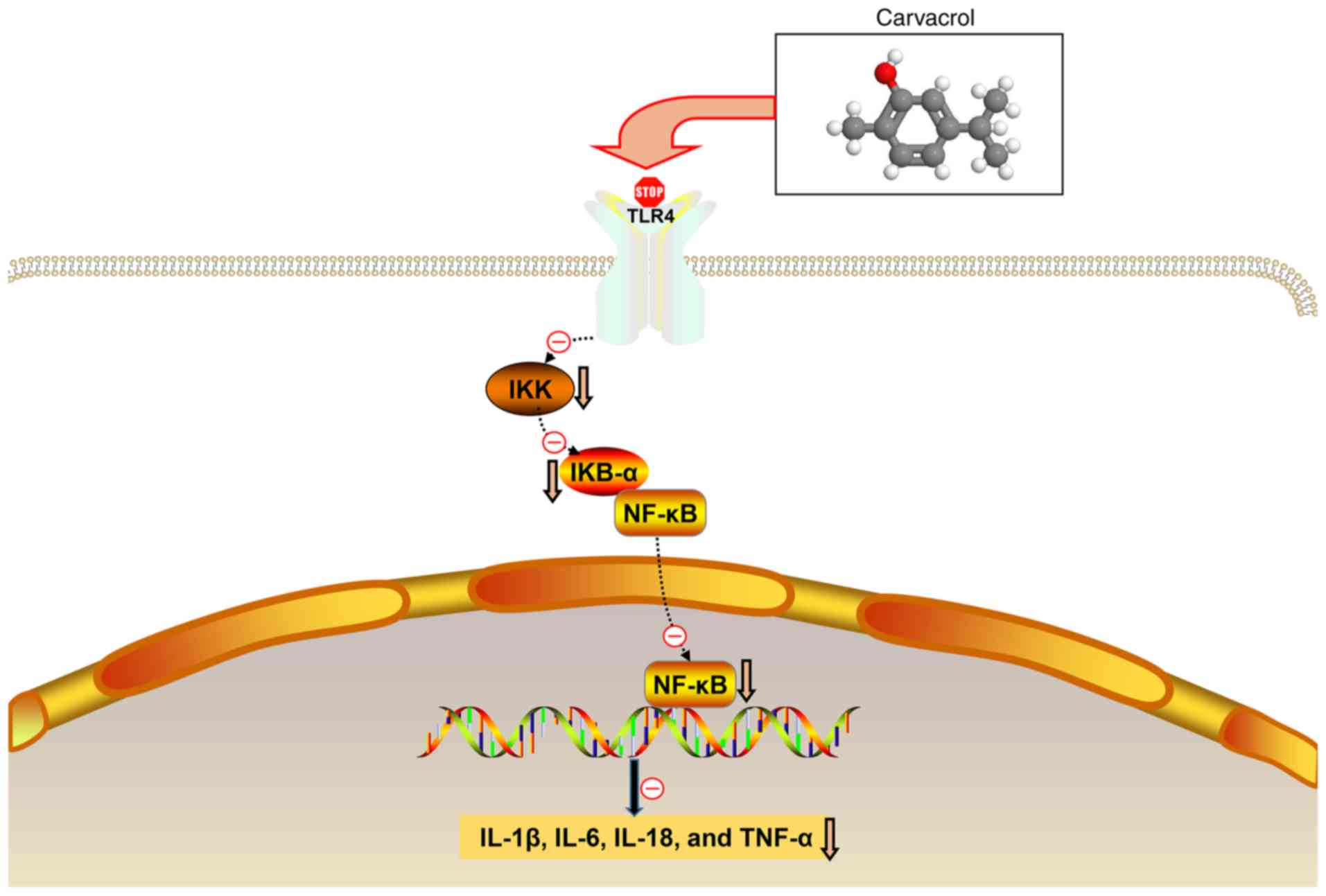|
1
|
van der Schaft N, Schoufour JD, Nano J,
Kiefte-de Jong JC, Muka T, Sijbrands EJG, Ikram MA, Franco OH and
Voortman T: Dietary antioxidant capacity and risk of type 2
diabetes mellitus, prediabetes and insulin resistance: The
rotterdam study. Eur J Epidemiol. 34:853–861. 2019. View Article : Google Scholar : PubMed/NCBI
|
|
2
|
Zhou Z, Jardine M, Perkovic V, Matthews
DR, Mahaffey KW, de Zeeuw D, Fulcher G, Desai M, Oh R, Simpson R,
et al: Canagliflozin and fracture risk in individuals with type 2
diabetes: Results from the CANVAS program. Diabetologia.
62:1854–1867. 2019. View Article : Google Scholar : PubMed/NCBI
|
|
3
|
Zheng Y, Yang Y, Dong B, Zheng H, Lin X,
Du Y, Li X, Zhao L and Gao H: Metabonomic profiles delineate
potential role of glutamate-glutamine cycle in db/db mice with
diabetes-associated cognitive decline. Mol Brain. 9:402016.
View Article : Google Scholar : PubMed/NCBI
|
|
4
|
GBD 2015 Disease and Injury Incidence and
Prevalence Collaborators: Global, regional, and national incidence,
prevalence, and years lived with disability for 310 diseases and
injuries, 1990-2015: A systematic analysis for the global burden of
disease study 2015. Lancet. 388:1545–1602. 2016. View Article : Google Scholar : PubMed/NCBI
|
|
5
|
Shaw JE, Sicree RA and Zimmet PZ: Global
estimates of the prevalence of diabetes for 2010 and 2030. Diabetes
Res Clin Pract. 87:4–14. 2010. View Article : Google Scholar
|
|
6
|
Petersen C, Bharat D, Cutler BR, Gholami
S, Denetso C, Mueller JE, Cho JM, Kim JS, Symons JD and Anandh Babu
PV: Circulating metabolites of strawberry mediate reductions in
vascular inflammation and endothelial dysfunction in db/db mice.
Int J Cardiol. 263:111–117. 2018. View Article : Google Scholar : PubMed/NCBI
|
|
7
|
Sawada N, Jiang A, Takizawa F, Safdar A,
Manika A, Tesmenitsky Y, Kang KT, Bischoff J, Kalwa H, Sartoretto
JL, et al: Endothelial PGC-1α mediates vascular dysfunction in
diabetes. Cell Metab. 19:246–258. 2014. View Article : Google Scholar : PubMed/NCBI
|
|
8
|
Brennan E, Wang B, McClelland A, Mohan M,
Marai M, Beuscart O, Derouiche S, Gray S, Pickering R, Tikellis C,
et al: Protective effect of let-7 mirna family in regulating
inflammation in diabetes-associated atherosclerosis. Diabetes.
66:2266–2277. 2017. View Article : Google Scholar : PubMed/NCBI
|
|
9
|
Ren Y, Tao S, Zheng S, Zhao M, Zhu Y, Yang
J and Wu Y: Salvianolic acid B improves vascular endothelial
function in diabetic rats with blood glucose fluctuations via
suppression of endothelial cell apoptosis. Eur J Pharmacol.
791:308–315. 2016. View Article : Google Scholar : PubMed/NCBI
|
|
10
|
Kang H, Ma X, Liu J, Fan Y and Deng X:
High glucose-induced endothelial progenitor cell dysfunction. Diab
Vasc Dis Res. 14:381–394. 2017. View Article : Google Scholar : PubMed/NCBI
|
|
11
|
Kara M, Uslu S, Demirci F, Temel HE and
Baydemir C: Supplemental carvacrol can reduce the severity of
inflammation by influencing the production of mediators of
inflammation. Inflammation. 38:1020–1027. 2015. View Article : Google Scholar
|
|
12
|
Somensi N, Rabelo TK, Guimarães AG,
Quintans-Junior LJ, de Souza Araújo AA, Moreira JCF and Gelain DP:
Carvacrol suppresses LPS-induced pro-inflammatory activation in RAW
264.7 macrophages through ERK1/2 and NF-kB pathway. Int
Immunopharmacol. 75:1057432019. View Article : Google Scholar : PubMed/NCBI
|
|
13
|
Manouchehrabadi M, Farhadi M, Azizi Z and
Torkaman-Boutorabi A: Carvacrol protects against
6-hydroxydopamine-induced neurotoxicity in in vivo and in vitro
models of parkinson's disease. Neurotox Res. 37:156–170. 2020.
View Article : Google Scholar
|
|
14
|
Khan F, Singh VK, Saeed M, Kausar MA and
Ansari IA: Carvacrol induced program cell death and cell cycle
arrest in androgen-independent human prostate cancer cells via
inhibition of notch signaling. Anticancer Agents Med Chem.
19:1588–1608. 2019. View Article : Google Scholar
|
|
15
|
Shoorei H, Khaki A, Khaki AA, Hemmati AA,
Moghimian M and Shokoohi M: The ameliorative effect of carvacrol on
oxidative stress and germ cell apoptosis in testicular tissue of
adult diabetic rats. Biomed Pharmacother. 111:568–578. 2019.
View Article : Google Scholar : PubMed/NCBI
|
|
16
|
Khazdair MR and Boskabady MH: The effect
of carvacrol on inflammatory mediators and respiratory symptoms in
veterans exposed to sulfur mustard, a randomized,
placebo-controlled trial. Respir Med. 150:21–29. 2019. View Article : Google Scholar : PubMed/NCBI
|
|
17
|
Kobayashi K, Forte TM, Taniguchi S, Ishida
BY, Oka K and Chan L: The db/db mouse, a model for diabetic
dyslipidemia: Molecular characterization and effects of Western
diet feeding. Metabolism. 49:22–31. 2000. View Article : Google Scholar : PubMed/NCBI
|
|
18
|
Peng BY, Wang Q, Luo YH, He JF, Tan T and
Zhu H: A novel and quick PCR-based method to genotype mice with a
leptin receptor mutation (db/db mice). Acta Pharmacol Sin.
39:117–123. 2018. View Article : Google Scholar :
|
|
19
|
Mahmoodi M, Amiri H, Ayoobi F, Rahmani M,
Taghipour Z, Ghavamabadi RT, Jafarzadeh A and Sankian M: Carvacrol
ameliorates experimental autoimmune encephalomyelitis through
modulating pro- and anti-inflammatory cytokines. Life Sci.
219:257–263. 2019. View Article : Google Scholar
|
|
20
|
Chen X, Wu S, Chen C, Xie B, Fang Z, Hu W,
Chen J, Fu H and He H: Omega-3 polyunsaturated fatty acid
supplementation attenuates microglial-induced inflammation by
inhibiting the HMGB1/TLR4/NF-κB pathway following experimental
traumatic brain injury. J Neuroinflammation. 14:1432017. View Article : Google Scholar
|
|
21
|
Tang ZH, Peng J, Ren Z, Yang J, Li TT, Li
TH, Wang Z, Wei DH, Liu LS, Zheng XL and Jiang ZS: New role of
PCSK9 in athero-sclerotic inflammation promotion involving the
TLR4/NF-κB pathway. Atherosclerosis. 262:113–122. 2017. View Article : Google Scholar : PubMed/NCBI
|
|
22
|
Sharma BR, Kim HJ and Rhyu DY: Caulerpa
lentillifera extract ameliorates insulin resistance and regulates
glucose metabolism in C57BL/KsJ-db/db mice via PI3K/AKT signaling
pathway in myocytes. J Transl Med. 13:622015. View Article : Google Scholar : PubMed/NCBI
|
|
23
|
Ogata S, Ito S, Masuda T and Ohtsuki S:
Changes of blood-brain barrier and brain parenchymal protein
expression levels of mice under different insulin-resistance
conditions induced by high-fat diet. Pharm Res. 36:1412019.
View Article : Google Scholar : PubMed/NCBI
|
|
24
|
Pivari F, Mingione A, Brasacchio C and
Soldati L: Curcumin and type 2 diabetes mellitus: Prevention and
treatment. Nutrients. 11:18372019. View Article : Google Scholar :
|
|
25
|
Wang Y, Zhou H, Palyha O and Mu J:
Restoration of insulin receptor improves diabetic phenotype in T2DM
mice. JCI Insight. 4:e1249452019. View Article : Google Scholar :
|
|
26
|
Eckel RH, Grundy SM and Zimmet PZ: The
metabolic syndrome. Lancet. 365:1415–1428. 2005. View Article : Google Scholar : PubMed/NCBI
|
|
27
|
Kammoun HL, Allen TL, Henstridge DC, Barre
S, Coll RC, Lancaster GI, Cron L, Reibe S, Chan JY, Bensellam M, et
al: Evidence against a role for NLRP3-driven islet inflammation in
db/db mice. Mol Metab. 10:66–73. 2018. View Article : Google Scholar : PubMed/NCBI
|
|
28
|
Pollack RM, Donath MY, LeRoith D and
Leibowitz G: Anti-inflammatory agents in the treatment of diabetes
and its vascular complications. Diabetes Care. 39(Suppl 2):
S244–S52. 2016. View Article : Google Scholar : PubMed/NCBI
|
|
29
|
Maedler K, Sergeev P, Ris F, Oberholzer J,
Joller-Jemelka HI, Spinas GA, Kaiser N, Halban PA and Donath MY:
Glucose-induced beta cell production of IL-1beta contributes to
glucotoxicity in human pancreatic islets. J Clin Invest.
110:851–860. 2002. View Article : Google Scholar : PubMed/NCBI
|
|
30
|
Herder C, Dalmas E, Böni-Schnetzler M and
Donath MY: The IL-1 pathway in type 2 diabetes and cardiovascular
complications. Trends Endocrinol Metab. 26:551–563. 2015.
View Article : Google Scholar : PubMed/NCBI
|
|
31
|
Rehman K, Akash MSH, Liaqat A, Kamal S,
Qadir MI and Rasul A: Role of interleukin-6 in development of
insulin resistance and type 2 diabetes mellitus. Crit Rev Eukaryot
Gene Expr. 27:229–236. 2017. View Article : Google Scholar : PubMed/NCBI
|
|
32
|
Zhuang H, Han J, Cheng L and Liu SL: A
positive causal influence of IL-18 levels on the risk of T2DM: A
mendelian randomization study. Front Genet. 10:2952019. View Article : Google Scholar : PubMed/NCBI
|
|
33
|
Akash MSH, Rehman K and Liaqat A: Tumor
necrosis factor-alpha: Role in development of insulin resistance
and pathogenesis of type 2 diabetes mellitus. J Cell Biochem.
119:105–110. 2018. View Article : Google Scholar
|
|
34
|
Babu PV, Si H and Liu D: Epigallocatechin
gallate reduces vascular inflammation in db/db mice possibly
through an NF-κB-mediated mechanism. Mol Nutr Food Res.
56:1424–1432. 2012. View Article : Google Scholar : PubMed/NCBI
|
|
35
|
Silambarasan M, Tan JR, Karolina DS,
Armugam A, Kaur C and Jeyaseelan K: MicroRNAs in hyperglycemia
induced endothelial cell dysfunction. Int J Mol Sci. 17:5182016.
View Article : Google Scholar : PubMed/NCBI
|
|
36
|
Xiao X, Dong Y, Zhong J, Cao R, Zhao X,
Wen G and Liu J: Adiponectin protects endothelial cells from the
damages induced by the intermittent high level of glucose.
Endocrine. 40:386–393. 2011. View Article : Google Scholar : PubMed/NCBI
|
|
37
|
Torimoto K, Okada Y, Mori H and Tanaka Y:
Relationship between fluctuations in glucose levels measured by
continuous glucose monitoring and vascular endothelial dysfunction
in type 2 diabetes mellitus. Cardiovasc Diabetol. 12:12013.
View Article : Google Scholar : PubMed/NCBI
|















